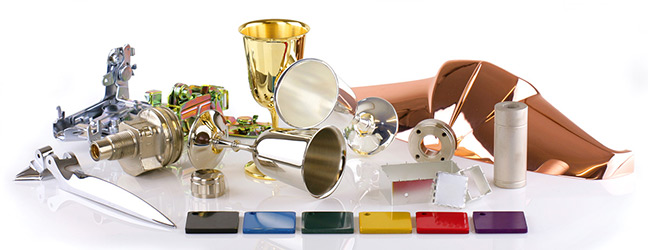What Are The Different Types Of Anodizing?
Metal anodizing is the process of electroplating metal, most commonly aluminium, to achieve a protective and decorative anodic oxide finish. It is a highly durable metal finish and can effectively resist scratching, corrosion and wear and tear, making it a popular choice within a range of industries across the country.
Our anodizing service is achieved by submersing aluminium into a bath of acid electrolytes. The aluminium (the ‘anode’) is given a positive electric charge, whereas the electrolyte bath is given a negative charge. This encourages a layer of invisible film to naturally form on the surface of the aluminium, giving it an anodized finish. If you are interested in our metal anodizing service or are wondering what type of anodizing is best for you, here is our guide on some of the most popular forms of anodizing.
Sulphuric Acid Anodizing
Sulphuric acid anodizing is one of the most popular methods of anodizing and is also relatively cost-effective. This metal anodizing service is especially favoured amongst applications that require a hard, tough surface with significant resistance to abrasion. It also offers a clearer finish compared to other forms of anodizing, providing more versatility when it comes to colour dying. Some of the most popular applications that feature sulphuric acid anodized surfaces are military weapons and mechanical hardware.
Hard Anodizing
This anodizing service allows us to give metals a hard anodized finish. This is usually performed with sulphuric acid, however in a much denser and thicker form to achieve a more robust finish. This means it works very well for industry applications that require extreme resistance to wear and tear. Industries that choose hard anodizing most commonly use or manufacture applications that are situated in harsher environments. These can include gears, valves or pistons. Due to its thickness and tough finish, hard anodized aluminium also offers improved electrical insulation.
Titanium Anodizing
Titanium anodizing is an electrolytic finishing process that utilises electric current to modify the oxide layer on the surface of titanium. This is used for several reasons, including corrosion control and bonding in the aerospace community, as well as biomedical applications. There are two commonly used types of titanium anodizing: Type 2 – mainly used to protect the metal surface against the effects of wear – and Type 3 – which is typically utilised in the medical world for quick visual identification of parts. Type 1 is less frequent and is applied to occasional high-temperature treatments.
Colour Anodizing
Colour anodizing is great for giving applications both durable and decorative qualities. We can incorporate coloured dyes into the anodizing process in order to improve its aesthetic appeal. This pigment seeps into all the empty pores within the metal, providing a permanent colour seal. This means that colour anodized surfaces cannot be scratched off from the surface level, making them extremely hard-wearing.
For more information about our metal finishing services in Dorset and Hampshire fill out our contact form or get in touch with our friendly team of experts on 01202 677939. We would be happy to discuss our metal anodizing service or another project you have in mind to find the best solution for you.


